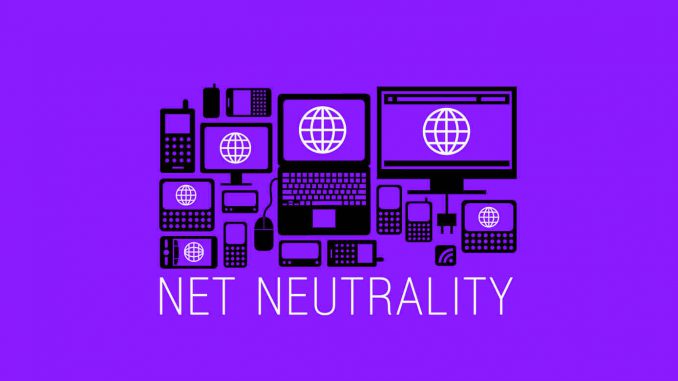
Two months ago, the Federal Communications Commission (FCC) voted to repeal net neutrality, despite a large public outcry.
But what is net neutrality, and how does it affect everyday internet users? Net neutrality says that internet providers cannot purposely slow down, speed up, or block connection to any particular website. This means that if someone has paid for internet, they have access to every website on the internet at the same connection speed. The internet is a lot like a multi-lane highway, websites are a lot like individual lanes and net neutrality eliminates the option of paying for a faster route, or being denied a decent route if one cannot pay for it.
Those who agree with the repeal of net neutrality believe that it is not the government’s place to regulate the internet, and feel that net neutrality stifles a potential gold mine of economic worth.
Those who disagree with the repeal of net neutrality argue that this will only harm consumers, and small businesses, in addition, many feel that the repeal of this protection could make finding unbiased, truthful information incredibly difficult.
“A broadband provider can choose to block sites that contain information they find objectionable. They can also decide to relay their favored information at a faster speed compared to their competitors. The way people use the internet will be changed forever,” said Indian Trail High School and Academy Medical Sciences student and senior class president, Rahib Iqbal.
There have been countless petitions for the FCC to reinstate net neutrality, but at this point, the only thing that can stop the repeal is a vote of congress.
“Net neutrality stood for the principle that all internet content should should be treated equally by the companies we pay to get online. Without it, big companies can pay more to get and stay ahead, while small businesses and innovators are hurt,” said Iqbal.
In fact, a recent poll by the University of Maryland found that 83 percent of people disagree with repealing net neutrality.
“The FCC is putting the greatest free market at risk so that bigger companies can make more money,” Iqbal said.
Those enraged by the idea of repealing net neutrality took to the internet. Hashtags like #savenetneutrality, #savetheinternet and #stopthefcc trended nationwide. Many people created petitions, like one on Change.org, titled Save Net Neutrality, which currently has 476,336 supporters.
“It [the repeal of net neutrality] paves the road for big companies to pay their way to the consumer’s eyes, leaving small businesses nearly helpless,” said Indian Trail Medical Sciences senior Mac Maedke
Public figures also made their displeasure heard. Actor Cole Sprouse (The Suite Life of Zack and Cody, Riverdale) has dedicated his Twitter account to stopping the repeal of net neutrality, tweeting “Until this issue and congress reach a conclusion, this account will be dedicated to continuing its discussion. In the event we lose, and the changes are permanent, I will be deactivating Twitter. I can’t bear charging you guys for whatever joy this account brings.”
Due to the enormous public outcry, many senators have agreed to attempt to begin proceedings to repeal the FCC’s decision regarding net neutrality.
“Net Neutrality was essential for our economy; it was essential to preserve freedom and openness, both for economic reasons and free speech reasons,” said former FCC Chairman Julius Genachowski.

